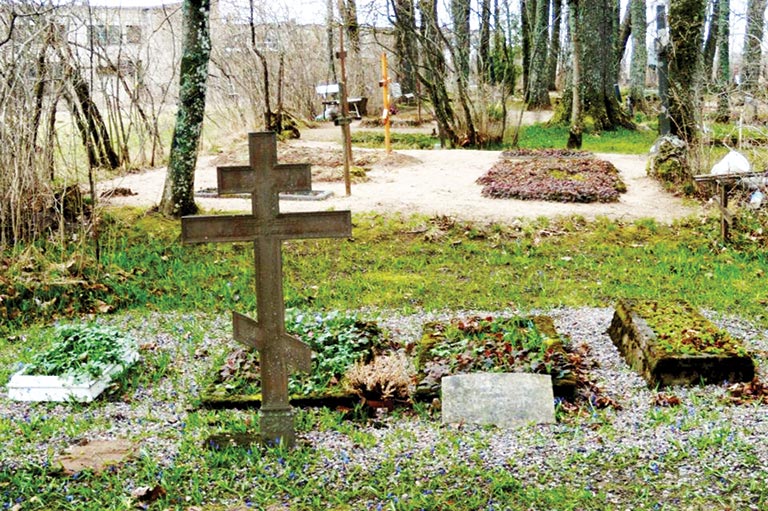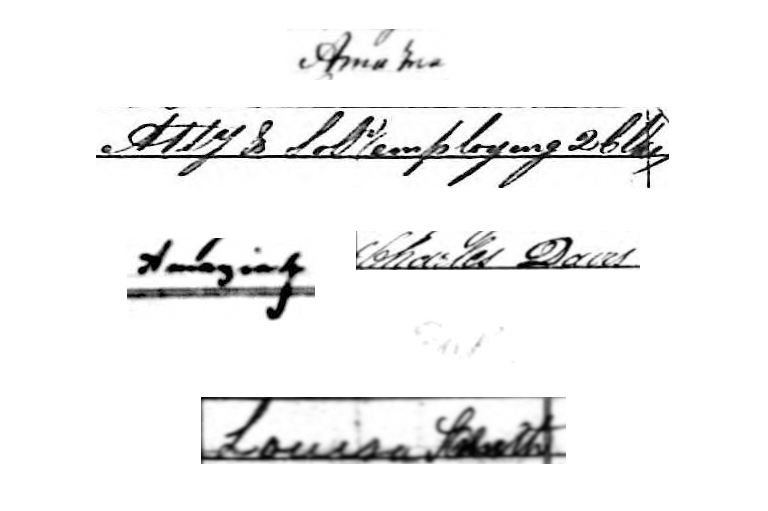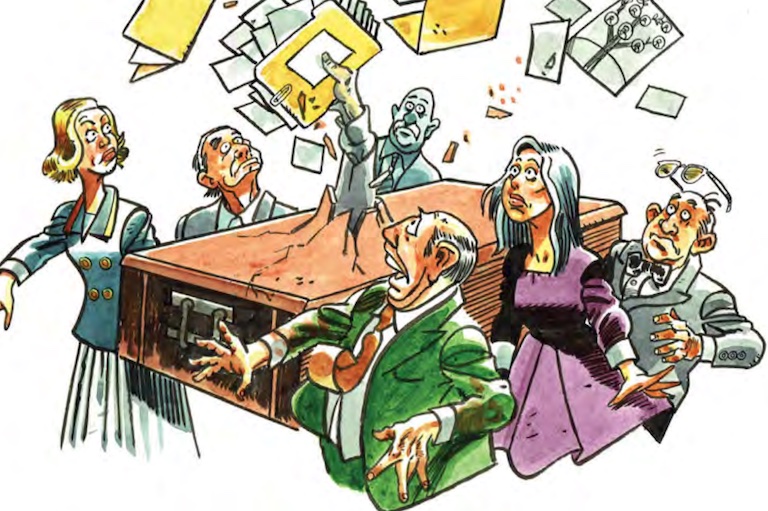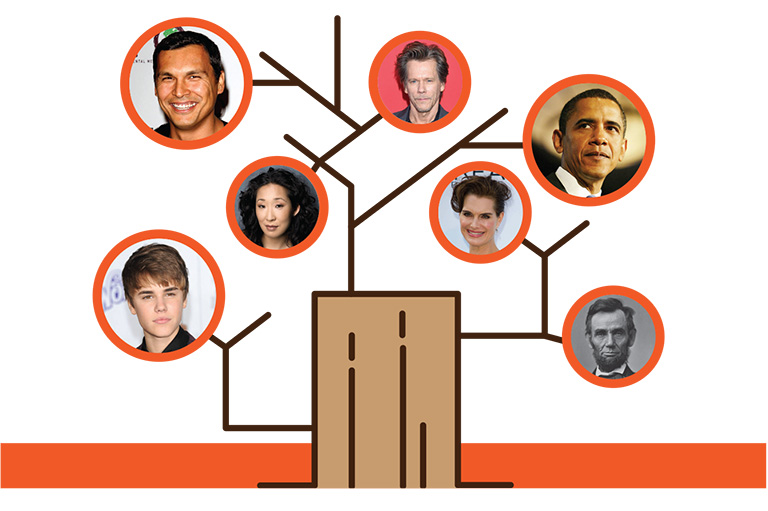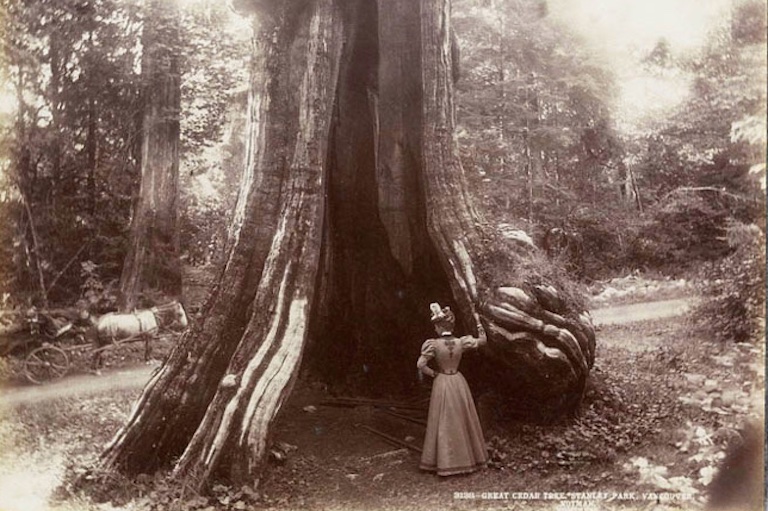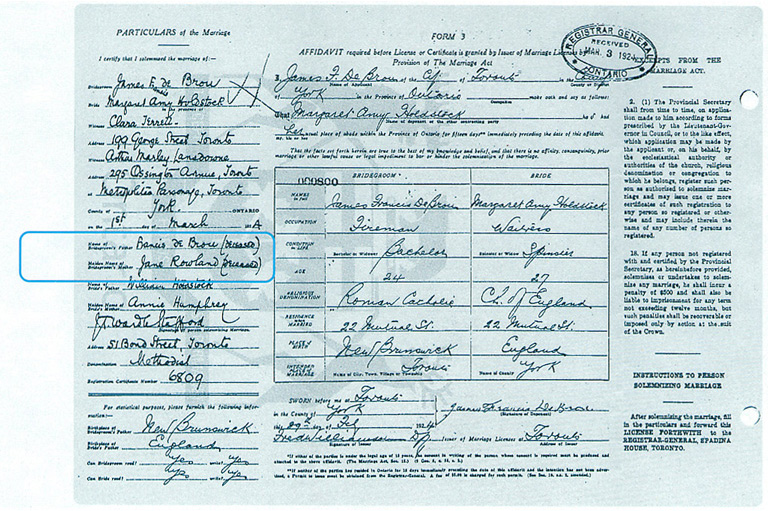Roots: The Ridiculous Of Genealogy
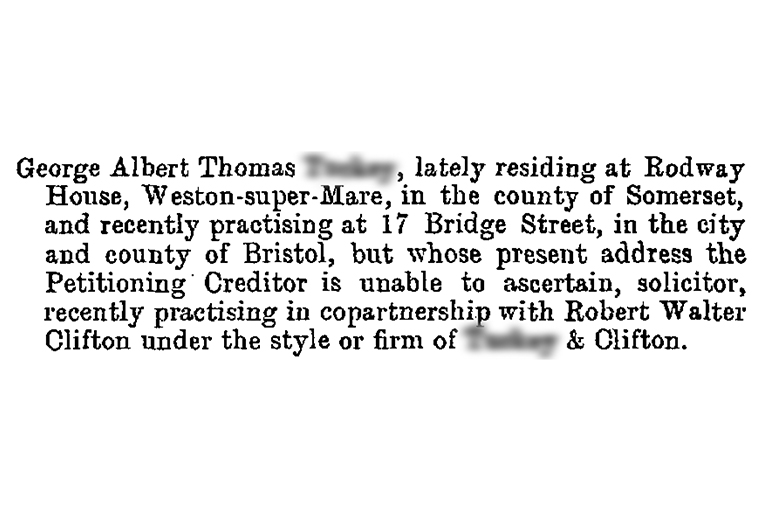
The December 2022-January 2023 Roots column introduced an investigation of the extremes of experiences for Canadian genealogists. This project elicited stories of the “good” (such as Helen’s tears of joy on finding her Irish great-grandmother’s grave in New Brunswick), the “bad” (as in Sam’s frustration, familiar to every genealogist, that records readily searched in one jurisdiction are inaccessible in another), and the “ridiculous,” which is perhaps a misnomer, as the category also embraced the strange and the puzzling. Human nature being what it is, these oddball stories provided enough material for a separate column.
Consider the case of an esteemed First World War administrator studied by researcher Peter on behalf of the man’s granddaughter. A solicitor in England, this fellow and his family had immigrated to Canada and were easily identifiable in both English and later Canadian records. No mystery there, it seemed.
Yet a question nagged at Peter: Why would an apparently successful solicitor emigrate with his family? This behaviour didn’t fit the expected pattern. When in doubt, ask Dr. Google … and up popped a 1911 list of bankrupts from the London Gazette featuring granddad’s name, but with his current whereabouts unknown. It seems they hadn’t looked in Ottawa.
Nervously, Peter broke the bad news to his friend and her husband. She expressed amazement at her grandfather’s checkered past. Then her husband piped up: “I knew that — your mother told me.”
Elsie had a similar surprise. She takes pride in her descent from Richard Olmstead, a founder of Hartford, Connecticut. But what goes around comes around. She also found that an ancestor named Ebenezer Olmstead had been accused of collecting but never remitting the tax revenues for nearby Ridgefield in 1780. She still holds out hope that it was merely a ridiculous misunderstanding.
Alison’s story has no element of the ridiculous, but it’s certainly odd and thought-provoking. The tale begins in Central America with an English great-uncle who married a widow with a small child. The couple had many more children of their own during a long and successful marriage. Then Alison got the research bug. She soon learned that the bride hadn’t been a widow and that her child was illegitimate.
With 7 uniquely curated newsletters to choose from, we have something for everyone.
So many secrets! What to say? As is often the best policy, sealed lips worked best. Grandma remains a saint to the family. Decades of marital harmony surely trump any retrospective suspicion that it had been a marriage of convenience for the bride.
As with the other stories in this column, Marian’s features a deception that did not turn out as planned. Her preposterous tale began with the discovery that her third cousin three times removed, Julius Sullivan De Visme, was enumerated in the 1861 census of Britain’s Channel Islands as a “Prince of the Kingdom of France.” Needless to say, you can’t ignore something like that. Indeed, Marian soon learned that Julius was neither the first nor the last in his extended family to make this nonsensical claim.
Her research tracked down an article that recounted the larger story, “The de Vismes family in Britain: The invention of a princely title,” hosted at heraldica.org. In the 1820s, the article reported, Elisha William De Visme, a well-to-do grandson of untitled Huguenot immigrants, attempted to elevate his status by styling himself the Count de Vismes, a supposedly ancient French honorific. By 1839, his son William had promoted himself to “comte de Vismes, prince de Ponthieu.” The deception gained further momentum when the de Vismes bloodline was posited to be derived from “the blood royal of France,” allowing both sons of the “count” to be called princes.
Most family members recognized this claim for the hokum that it was. Some, including Marian’s distant relative Julius, were more credulous and extended the claim to their own collateral lines. As recently as 2006, the Daily Telegraph carried a death notice for one of Julius’s descendants still bearing the moniker “Sovereign Count de Vismes, Ponthieu et St Valery.” Now that’s ridiculous!
Themes associated with this article
Advertisement
You might also like...
Save as much as 40% off the cover price! 4 issues per year as low as $29.95. Available in print and digital. Tariff-exempt!

